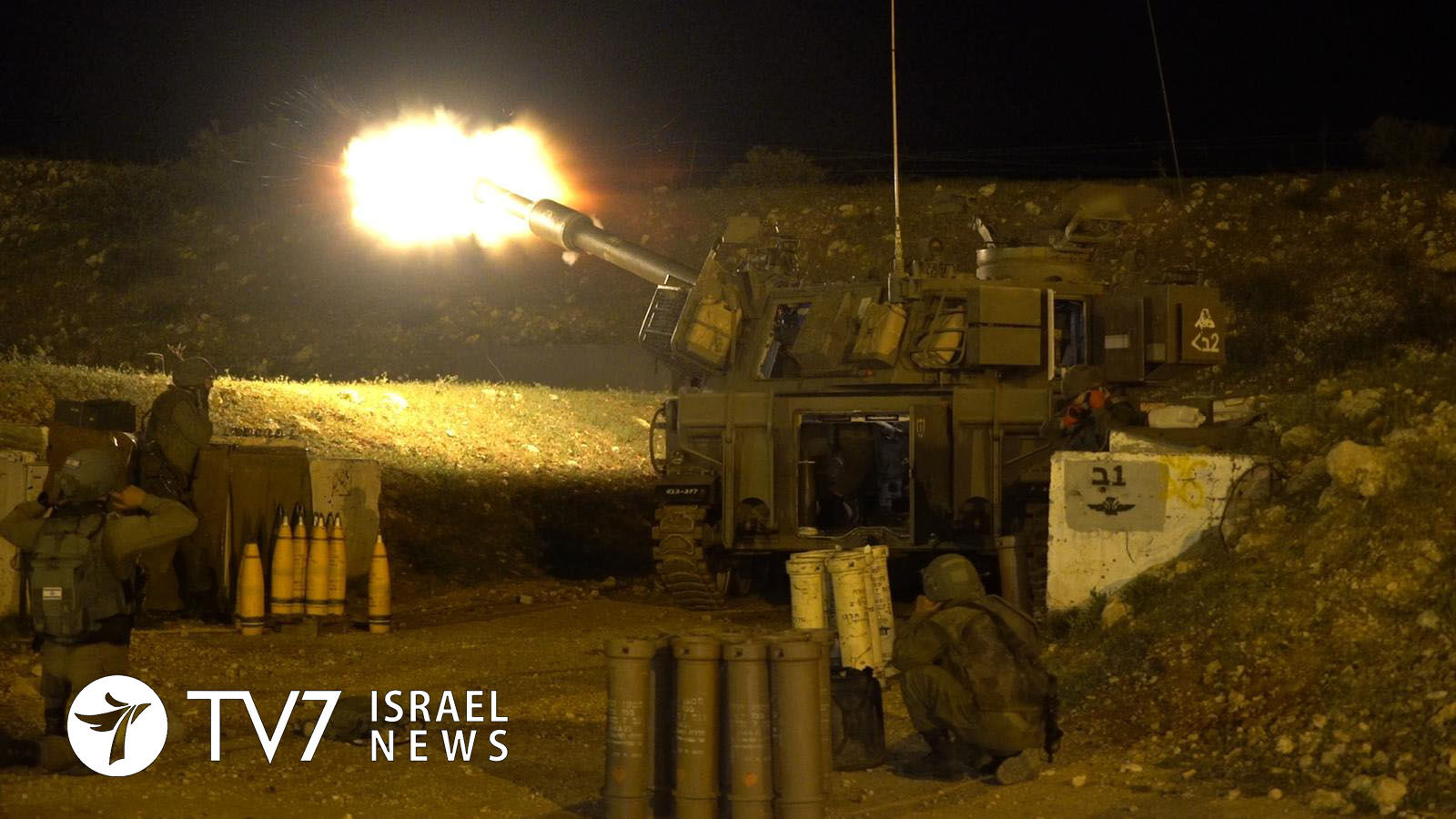The missile landed in an open area in northern Israel overnight, in an apparent spillover violence related to Palestinian-Israeli confrontations at Jerusalem’s Al-Aqsa Mosque.
By Erin Viner
The IDF said in a statement that the projectile landed near Kibbutz Matzuva.
“In response to the launch, IDF Artillery targeted the area of the source of the projectile launched and an infrastructure target located in open areas in southern Lebanon,” added the military, which also released a video and photographs of the retaliatory strike.
The IDF announced on Twitter that it fired dozens of shells at “open spaces in south Lebanon, near the launch area, and also at an infrastructure target,” which it declined to identify. The IDF did not impose any emergency measures in northern Israel, and instructed citizens to resume their normal routines.
Palestinian groups in Lebanon are behind the rocket attack, IDF Spokesman Brigadier General Ran Kochav said while speaking to Israel’s Kan Radio, adding, “We believe … this is linked to the Muslim holy month of Ramadan and the riots on the Temple Mount.”
He was referring to clashes over the past two weeks between Palestinians and Israeli police at the Al-Aqsa Mosque at a complex known as Haram al Sharif by Muslims, built on the ruins of both Biblical Temples. The area is called Temple Mount by Israel, and considered by the Jewish People as the holiest site in the world, also revered to Christians. The compound is Islam’s third most sacred site after Mecca and Medina; and the Al-Aqsa Mosque area is the most sensitive site in the generations-old conflict.
The future of Jerusalem is at the heart of the Israeli-Palestinian conflict. Palestinians want east Jerusalem to be the capital of a state they seek to establish in the West Bank and Gaza.
Even though Israel regards the whole of Jerusalem as its eternal capital and the center of the Jewish faith, it has observed a “status quo” arrangement that existed prior to its reunification of Jerusalem following the 1967 Six Day War that bars Jewish prayer at the compound as not to ‘inflame Muslim anger.’ Palestinians accuse Israel of restricting Muslim worship at the mosque while not doing enough to enforce a long-standing ban on Jewish prayer at the compound, visited by Jewish pilgrim groups during the recent Passover holiday that coincided with Ramadan.
Israel strongly refutes the allegations and maintains that the only impediment to Muslim worship at the holy site have been the Palestinian riots incited by the Hamas terrorist rulers of Gaza. Senior leaders including Foreign Minister and Alternate Premier Yair Lapid and Defense Minister Benny Gantz have repeatedly reaffirmed Israel will continue to adhere to the historical “status quo” restricting prayer at the site exclusively to only Muslims and permits only visits by Jews and Christians.
Israeli security forces have been on high alert during Ramadan, which this year coinciding with the Jewish holiday Passover and Christianity’s Easter – bringing visitors from all three monotheistic faiths together in the Old City. The holidays also come in the wake of a series of deadly Palestinian / Arab terror attacks have killed 14 people in Israel since March.
Hundreds of rioters at al-Aqsa approached the Western Wall where Jewish worship was underway this past Friday, said Israeli police. When security teams were forced to intervene and enter the compound to utilize crowd-dispersal methods, the assailants responded by hurling rocks and shooting fireworks at them. At least 57 Muslims were injured in clashes with Israeli police at the Al-Aqsa Mosque compound on Friday, according to Palestinian medics; while Israeli sources said that dozens reportedly sustained light injuries mostly as a result of tear gas inhalation.
It is important to highlight that Israeli riot police refrained from intervening until after the Muslim prayer services concluded.
In the latest attack, Islamist terrorist launched two rockets from the Hamas-controlled Gaza Strip toward Israeli communities last night around 10 PM. The IDF Spokesperson’s Unit informed TV7 that one projectile exploded in an uninhabited area in southern Israel while the second rocket failed to cross into Israel and instead exploded in the Palestinian enclave. Another third rocket slamming into an uninhabited area in Israel at was launched at about 2:40 AM this morning. There were no reported injuries or damage in any of the attacks.
The Israeli security establishment decided to refrain from military retaliation at this stage, opting instead to respond with economic measures by announcing the immediate closure of the commercial Erez border crossing connecting Israel and Gaza.
The surging violence has raised concerns over the potential eruption of a wider Israeli-Palestinian conflict. Major clashes between Muslims and Jerusalem police that marked last year’s observance of Ramadan ignited full scale fighting with Gaza when Palestinian terror groups based in the territory fired more than 4,000 rockets at the Jewish State during the ensuing 11-day Operation Guardian of the Walls in May.
While small Palestinian factions in Lebanon have fired sporadically on Israel in the past, major flare-ups along the frontier are rare. The last escalation was in 2021 when 19 rockets launched from Lebanon were either intercepted by Israel’s Iron Dome missile defense system or fell in uninhabited areas near Har Dov; also prompting retaliatory IDF artillery strikes on territory from which the attack originated. The demarcation line between the two countries has been largely quiet since a 2006 war between Israel and the Iran-backed Hezbollah terror group, which is heavily entrenched in southern Lebanon and armed with an arsenal of advanced rockets.
Head of the United Nations Interim Force In Lebanon (UNIFIL) Major General Aroldo Lázaro Sáenz urged “calm and restraint” in a message posted on Twitter.
